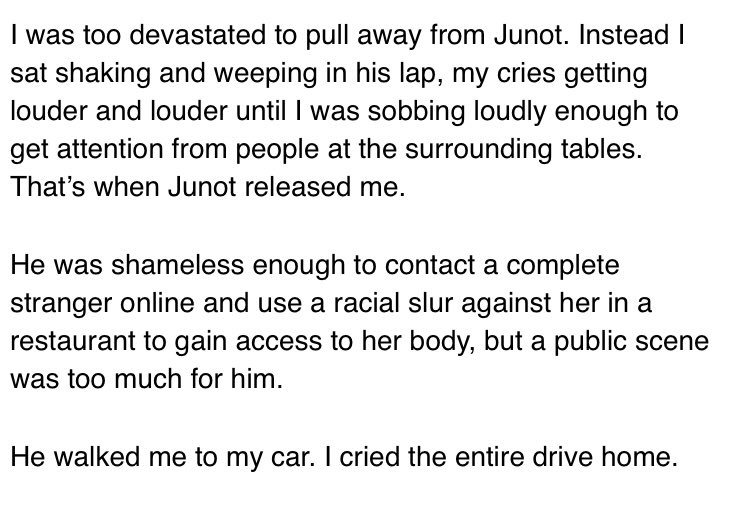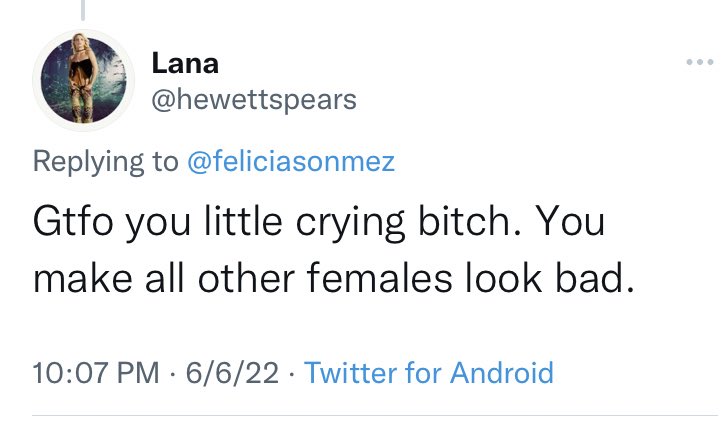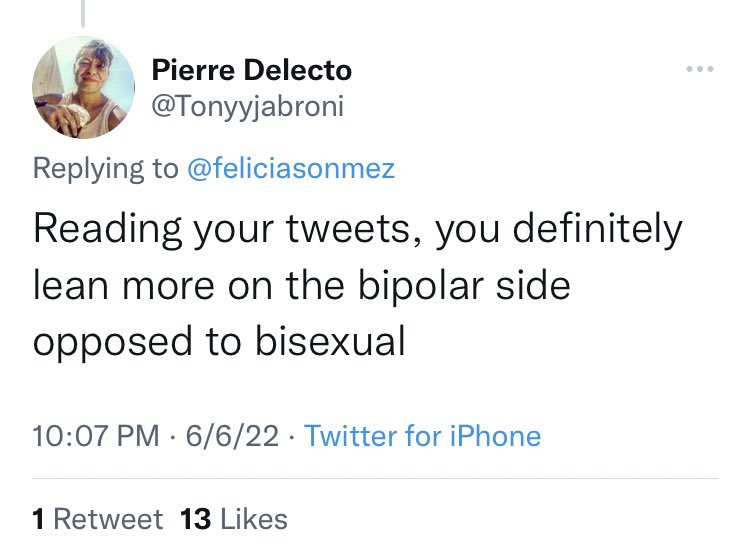My response to @EmilyYoffe's @reason piece on Jonathan Kaiman is here: bit.ly/2Hn1Rv9 I've written to @kmanguward and other editors requesting that they correct the piece. In her 8,000-word story, there was a lot Ms. Yoffe got wrong, so please forgive the length. (1/2) 







@EmilyYoffe @reason @kmanguward Here's the rest. As I point out, contrary to Ms. Yoffe's claim, there was no "mob justice" in this case. There was in fact a three-month investigation into numerous allegations against Mr. Kaiman. Ms. Yoffe omitted this and much more in her piece. (2/2) 

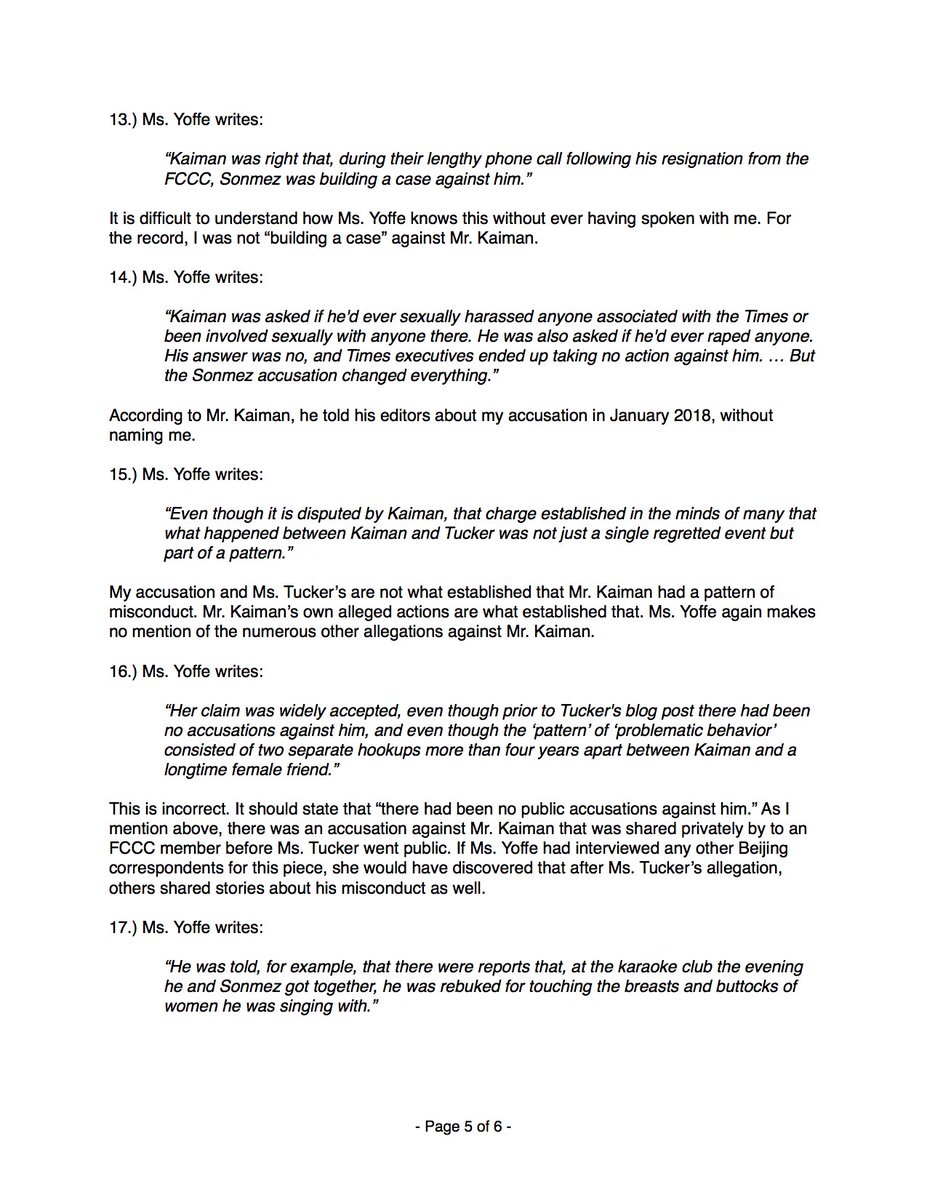
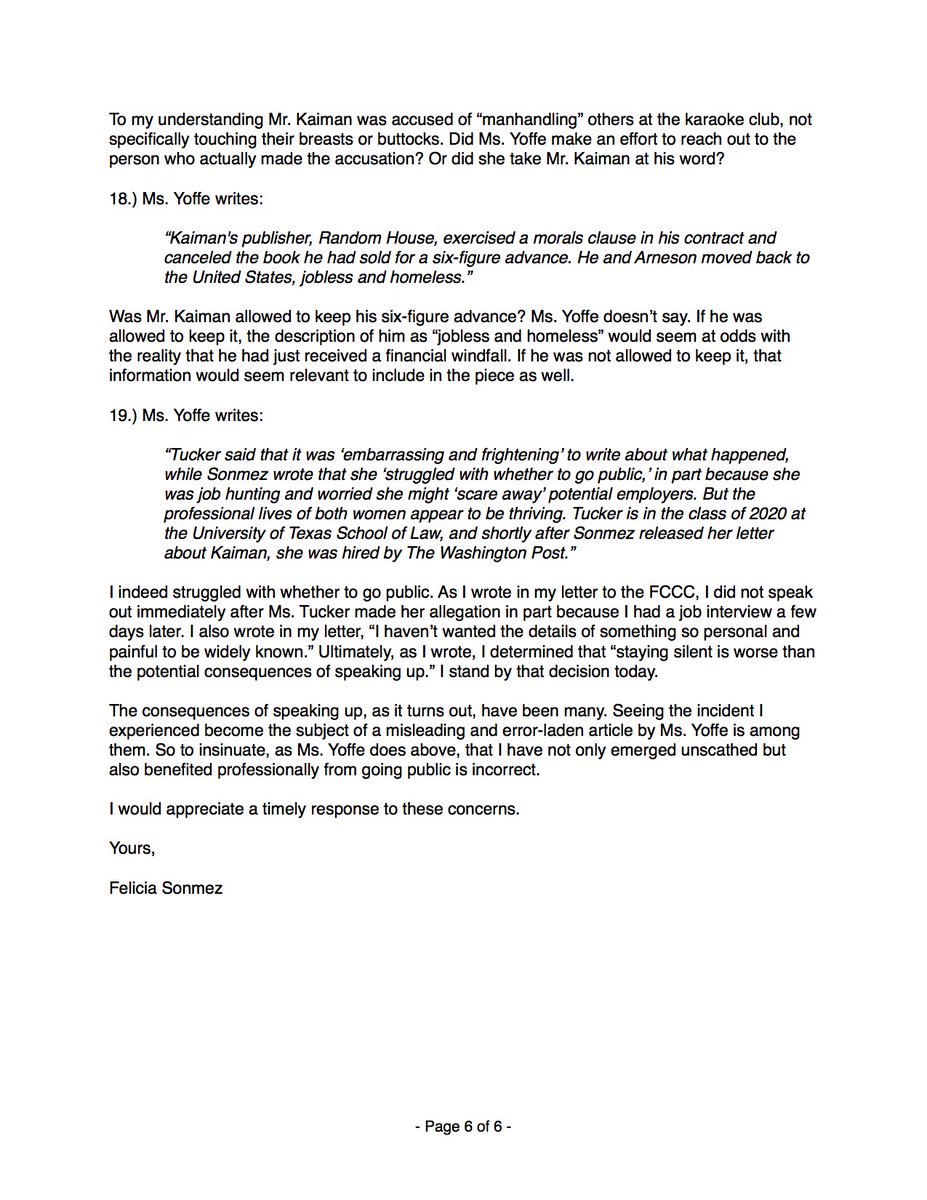
@EmilyYoffe @reason @kmanguward Among the accusations omitted by Ms. Yoffe was this one, which was made publicly months before I came forward. 

@EmilyYoffe @reason @kmanguward Ms. Yoffe also got basic facts wrong. Her article misquotes statements from an FCCC meeting, and claims the organization sent out my accusation on Twitter. It never did.
@EmilyYoffe @reason @kmanguward Perhaps most unfortunately, for a piece touted by @kmanguward as a "deep dive," Ms. Yoffe seems not to have dived very far. She dismisses an alleged 2011 incident as "long-ago," and it's unclear whether she even bothered to try to reach the person involved. 
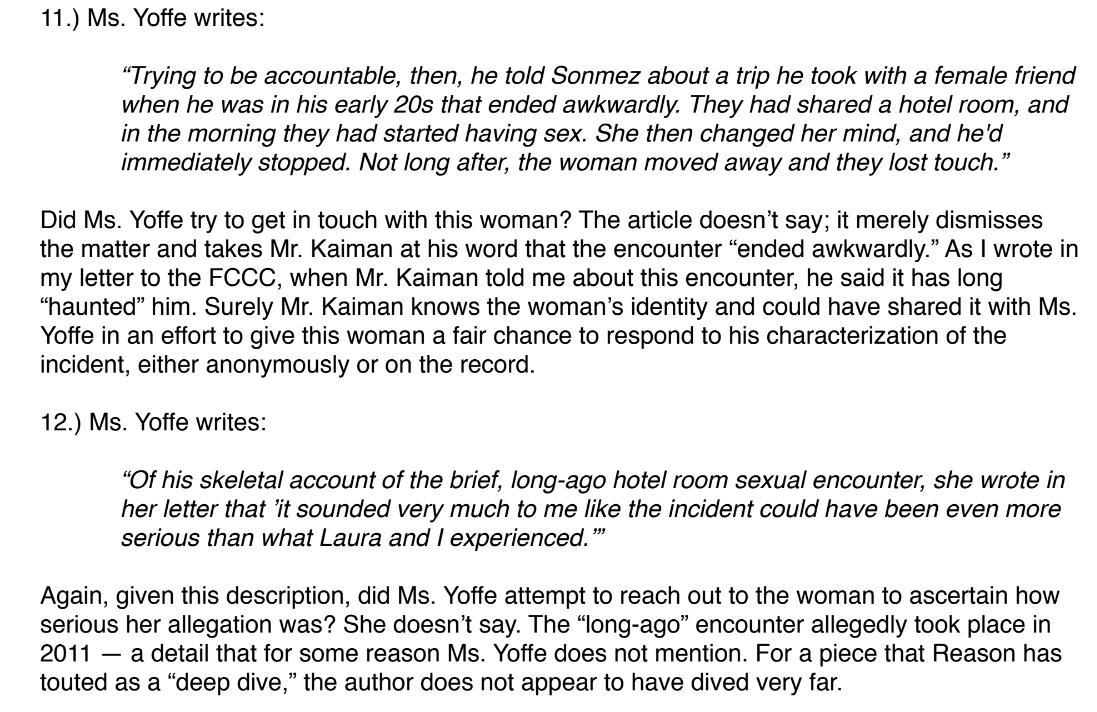
@EmilyYoffe @reason @kmanguward Ms. Yoffe incorrectly claims that Mr. Kaiman "fiercely disputed" my account. In reality, he has confirmed key parts of it. 

@EmilyYoffe @reason @kmanguward Mr. Kaiman's behavior was not limited to just two incidents, as Ms. Yoffe claims. There was an allegation of inappropriate behavior shared within the FCCC before Ms. Tucker or I came forward, and many more shared afterward. A little reporting would have revealed that and more. 

@EmilyYoffe @reason @kmanguward Ms. Yoffe and her editors also leave key questions hanging. The piece mentions Mr. Kaiman's six-figure book advance, but then goes on to describe him as "jobless and homeless" without making any mention of whether he was allowed to keep it. This seems like relevant information. 

@EmilyYoffe @reason @kmanguward At one point, Ms. Yoffe insinuates that I benefited professionally from making an accusation of sexual misconduct. The truth is that speaking out has had consequences -- including being the subject of an error-laden story such as this one. But it is a decision I stand by today. 

@EmilyYoffe @reason @kmanguward To those who still think this case was an example of "moral panic" and "mob justice," consider that I spent three months reliving the worst night of my life in painful detail -- first for one investigation, and then all over again once the second one began.
I spent more than eight hours speaking with investigators -- including on the day I interviewed for my current job. I probably lost about 10 pounds in the process, and I wouldn't have eaten if friends hadn't come by and kept bringing me food.
In the weeks after I came forward, I wasn't able to bike or drive. I was afraid to cross the street because I feared I'd get hit by a car. Eventually I made it to the supermarket and just stood in the aisle, staring blankly at bottles of shampoo without processing anything.
Those weeks were the scariest thing I've ever experienced. I know Mr. Kaiman's other accusers have faced similar difficulties. And even months after life started getting back to normal, I still refused to put my name on my mailbox at home because I was afraid.
I kept my desk at work clear for months -- something a few colleagues noticed and joked about as they passed by. But it was because I was having a hard time believing I was really there.
Eventually, the investigation finished, Mr. Kaiman lost his job, and every now and then he'd rear his head to do a media interview and a reporter would reach out to me for comment. I mostly said little. I tried to keep my head down at work, do a good job, and move on. And I have.
Pieces like Ms. Yoffe's make it more difficult, but I'll keep moving on. And any more false claims of "mob justice," I'll continue to rebut. Mr. Kaiman had not one, but two, thorough investigations. He may not agree with the outcome, but his treatment of women had consequences.
Reason Magazine should be ashamed of publishing this piece, but I know I can't expect that much, so at the very least I hope the editors will correct Ms. Yoffe's many errors.
And for anyone else out there who has experienced misconduct and is scared to death about speaking out and having your name dragged through the mud like this, I hear you. It is scary. Stay strong and speak truth.
• • •
Missing some Tweet in this thread? You can try to
force a refresh



